What Is Campaign Finance Reform?
Campaign finance reform refers to changes in laws and regulations that govern how money flows into political campaigns and elections. Currently, candidates, political parties, and outside groups can raise and spend money to influence elections, but the rules around these activities have evolved significantly over the past few decades.
The current system allows wealthy individuals, corporations, and special interest groups to contribute large sums through various channels, including Super PACs (Political Action Committees) that can raise unlimited funds. Campaign finance reformers want to change these rules to reduce the influence of big money in politics.
The Case for Reform
Leveling the Playing Field: Supporters argue that the current system gives disproportionate political power to wealthy donors and corporations. When a small group of mega-donors can fund entire campaigns, everyday Americans’ voices get drowned out. Reform could help ensure that politicians are more responsive to regular voters rather than major contributors.
Reducing Corruption: Large donations can create situations where politicians feel obligated to donors rather than constituents. Campaign finance reform could reduce the appearance and reality of corruption by limiting how much influence money can buy.
Increasing Participation: Many young people and lower-income Americans feel disconnected from politics partly because they can’t compete financially with wealthy interests. Reform measures like public financing of campaigns could make the system more accessible and representative.
Transparency: Reform often includes requirements for faster, more detailed disclosure of who’s funding campaigns, helping voters make informed decisions.
The Case Against Reform
Free Speech Concerns: Critics argue that spending money on political causes is a form of protected speech under the First Amendment. Limiting campaign contributions and expenditures could restrict this fundamental right.
Practical Challenges: Money often finds ways around restrictions. Some argue that complex regulations create loopholes that benefit those with resources to navigate them, while potentially disadvantaging grassroots campaigns.
Unintended Consequences: Strict limits on traditional fundraising might push more money into less transparent channels, making the system worse rather than better.
Innovation and Adaptation: The current system has already evolved to include small-dollar online fundraising, which has helped candidates without traditional donor networks compete effectively.
What This Means for You
For young adults and working families, campaign finance reform could mean politicians who are more focused on issues like student debt, healthcare costs, and job opportunities rather than catering to wealthy donors. However, the debate over how to implement these changes continues, with valid concerns on multiple sides about protecting both democratic participation and constitutional rights.
The key is staying informed about specific proposals and making your voice heard through voting and civic engagement, regardless of where you stand on these complex issues.
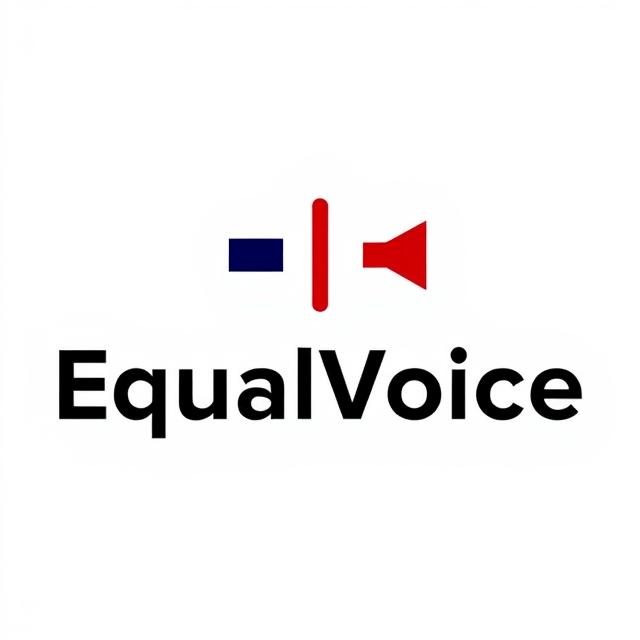
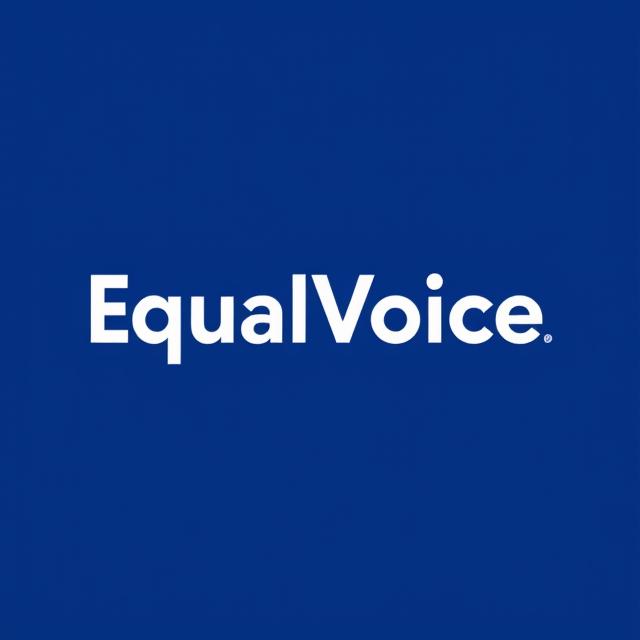
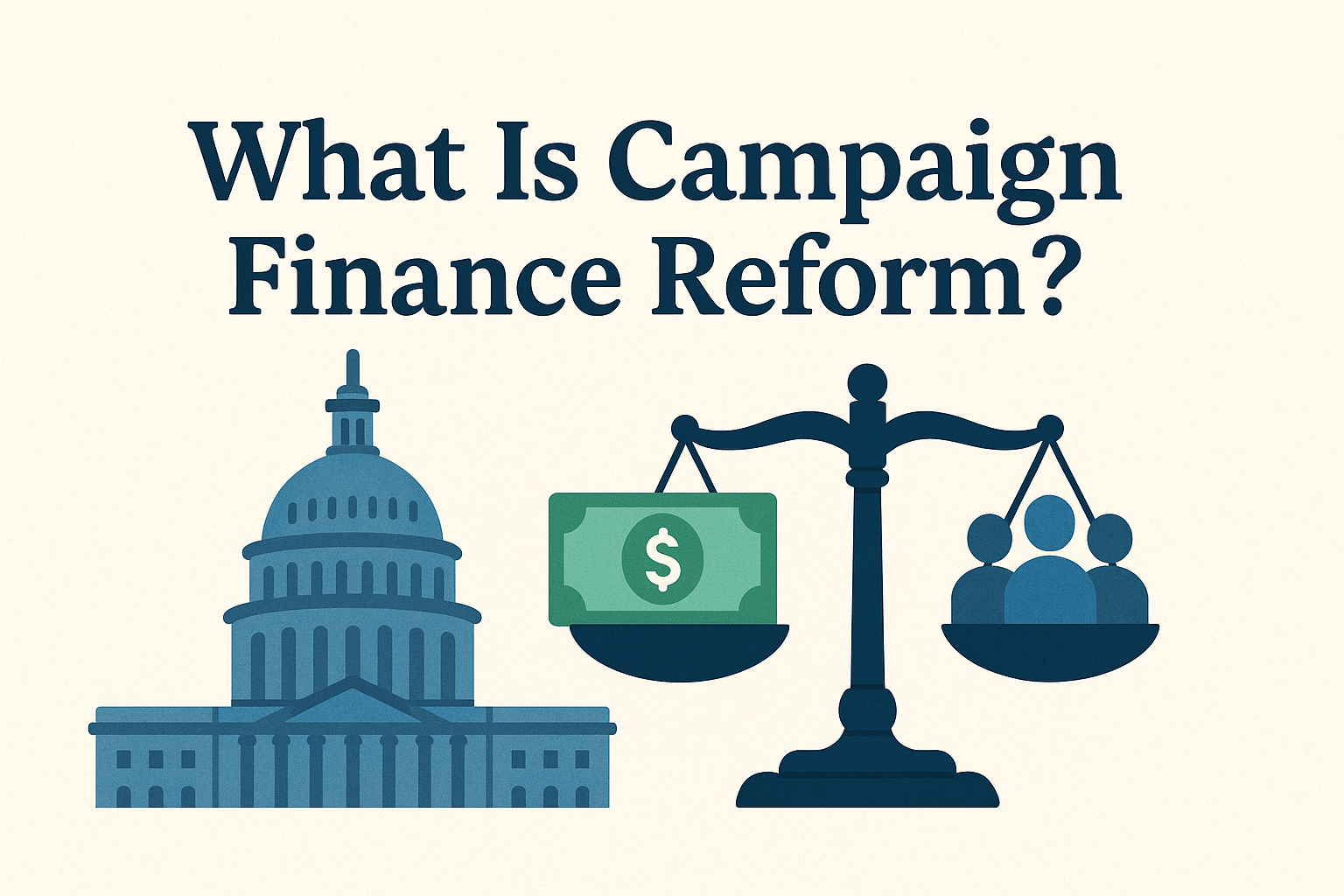
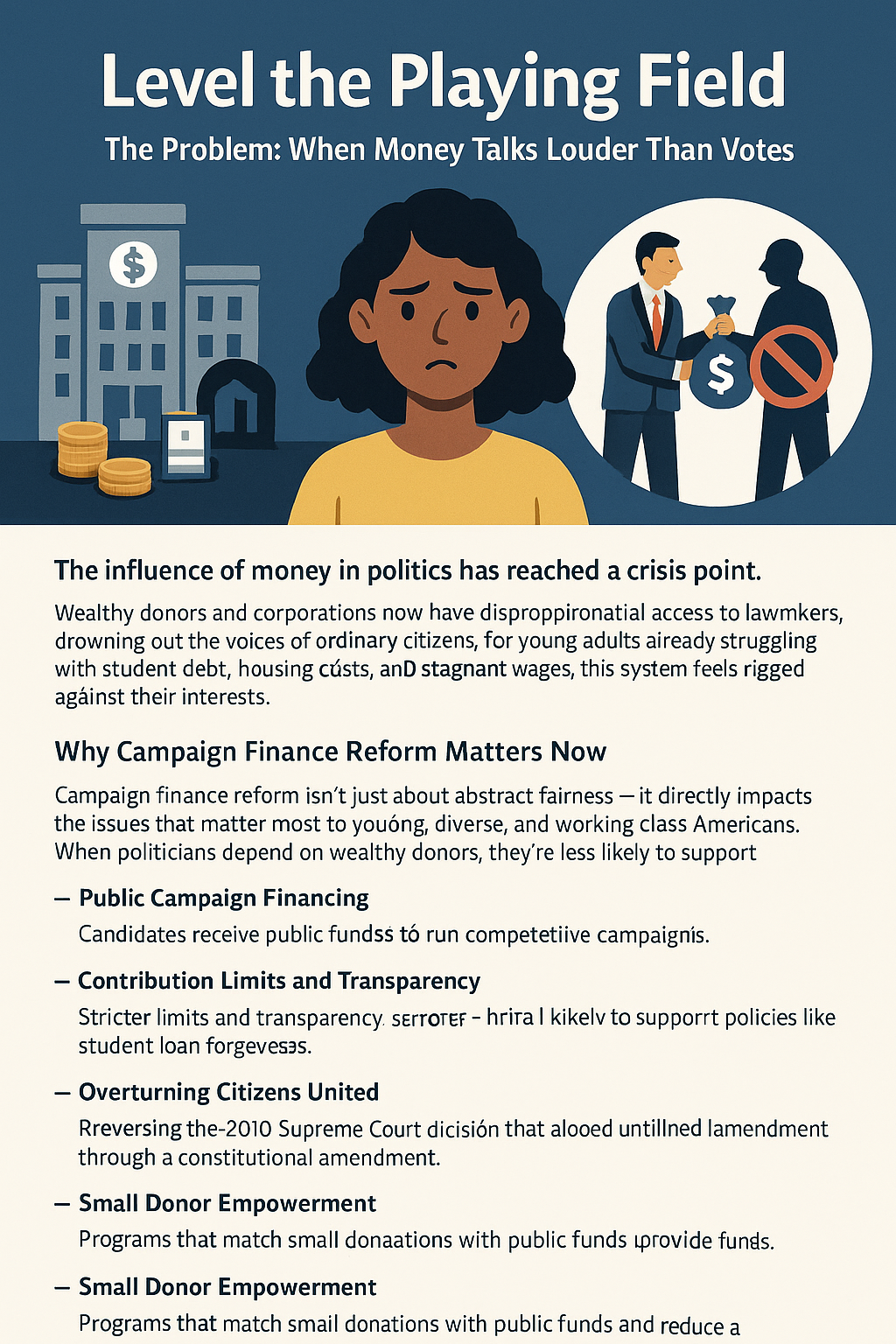





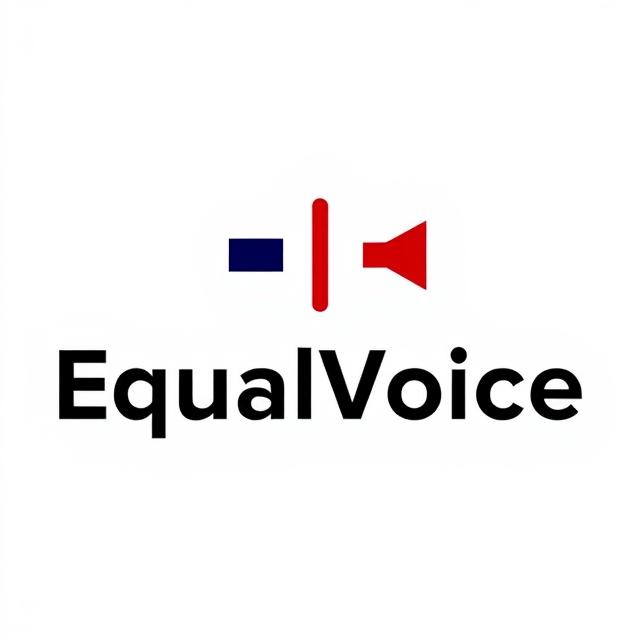
Leave a comment